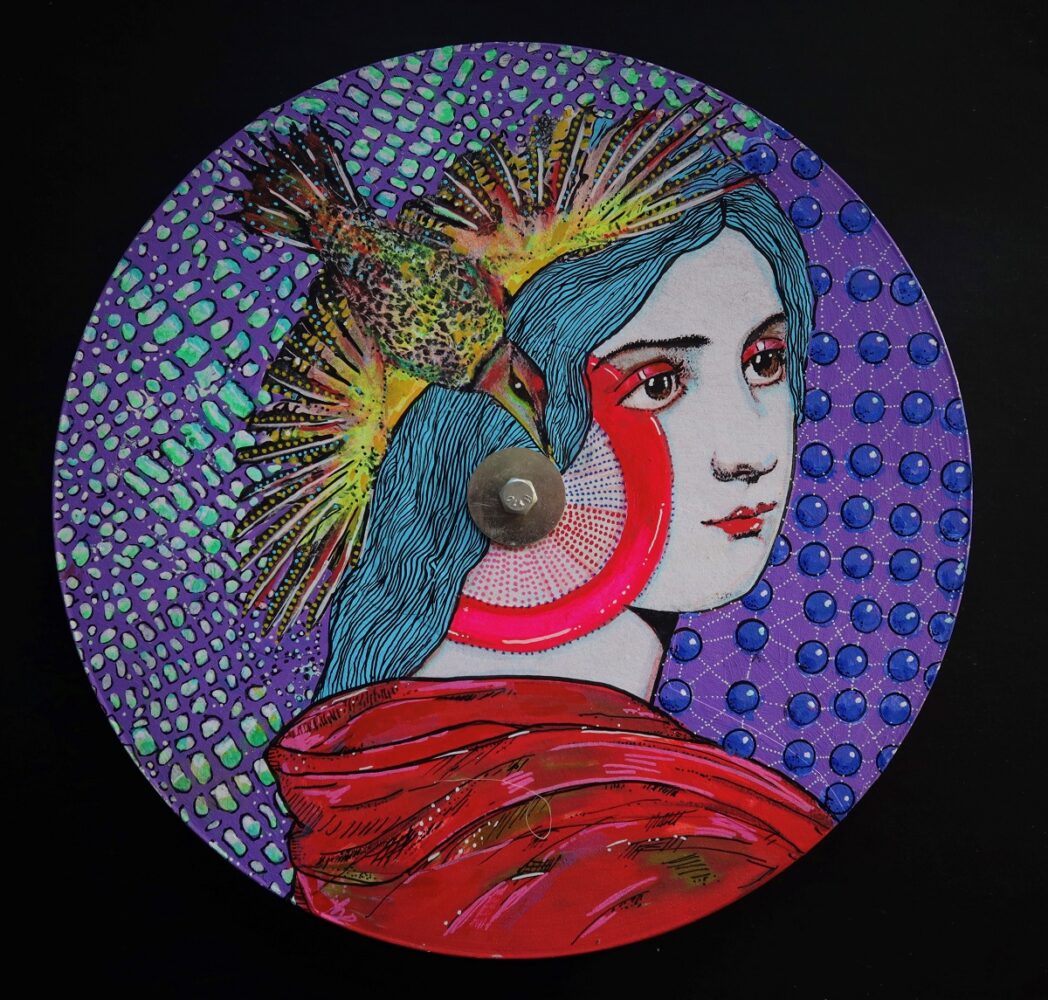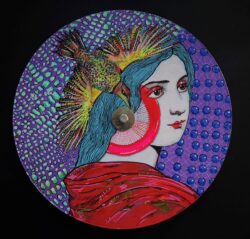Evangeline: Evolution of an Icon
A new exhibit at West Baton Rouge Museum
Published: August 31, 2021
Last Updated: June 9, 2023

François Gaudet
François Gaudet, RÉvangéline, 2019, mixed media.
Evangeline’s story as told by Longfellow follows the beautiful young Acadian maiden as she is separated from her fiancé on her wedding day during the brutal deportation of the French-speaking people from Acadia (modern-day Nova Scotia), and it tracks her epic journey to find him. The couple is reunited too late; the romantic tale ends tragically. The poem was so successful in its first year that five editions of one thousand copies each sold out. It went through about 270 editions and some 130 translations over the next hundred years. Generations of children grew up reading and reciting Longfellow’s poem, which was taught in schools.
The Acadians did not take to Evangeline readily. Described by an author who never set foot in Canada nor Louisiana, Evangeline did not reflect the intense suffering of their past. Acadian authors produced their own “true” stories of Evangeline as early as 1880. Despite lack of evidence of an actual Evangeline, tourists flocked to the lands of the Acadians, seeking to learn more about the illustrious heroine and her Acadian culture.
The still-marginalized Acadian people were encouraged by Evangeline’s public acceptance and eventually came to regard her as a personification of their survival and rebirth. They adopted Evangeline as an early signifier of their cultural identity, using her name to indicate “Acadian-made.” A powerful tool to reunite the Acadian people of Louisiana with their Canadian kin, Evangeline helped establish recognition of the Acadians as a distinct people. By the bicentennial of the Great Deportation, in 1955, Evangeline was a recognizable symbol. Thousands of women dressed as Evangeline for the celebration to demonstrate pride in their heritage.
The West Baton Rouge Museum’s exhibition Evangeline: Evolution of an Icon provides a glimpse into Acadian history and Evangeline’s evolution into a cultural icon as seen in mainstream popular culture. Artwork by Canadian and Louisiana artists, including George Rodrigue, will be on view, as well as artifacts and paraphernalia demonstrating Evangeline’s ongoing transformation and her timeless public appeal.
The West Baton Rouge Museum is located at 845 N. Jefferson Avenue in Port Allen. For information, call (225) 336-2422 or visit westbatonrougemuseum.com.
